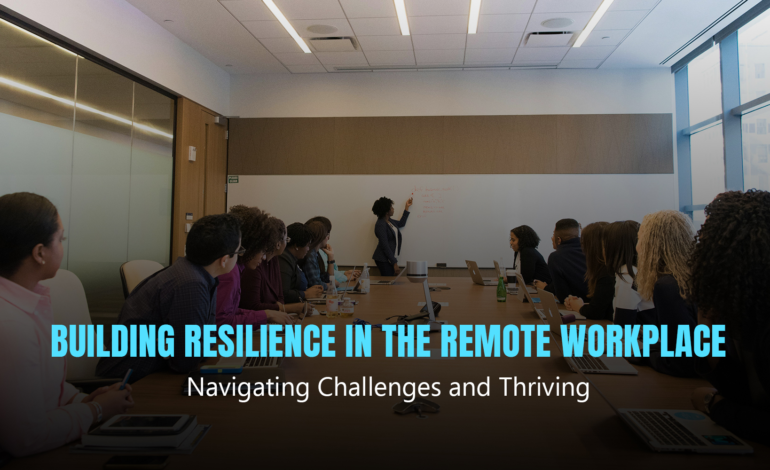
Feedback and continuous learning are crucial to professional development. Both feedback and continuous learning are important for career growth, as well as personal growth. Feedback is information about a person’s performance, behavior or work, provided by others. It can be positive or negative and can help to identify areas for improvement, as well as strengths. Feedback is an essential tool for personal and professional growth.
Continuous learning, on the other hand, refers to the ongoing process of acquiring new skills, knowledge and experiences. It is a lifelong pursuit of growth and development that enables individuals to keep up with the changing demands of their profession and adapt to new challenges. Continuous learning can take many forms, including formal education, on-the-job training, attending workshops or conferences, and self-directed study. Let’s look how feedback and continuous learning can help you with professional development:
Improves performance
Feedback is the best way to improve performance. When you get feedback, you learn what your strengths are and where you could use some work. You can then focus on those areas and improve yourself. Feedback is great in the workplace because it helps employees understand how they can work better with others. It also helps them understand what their weaknesses are, so they can try to overcome them.

Encourages self-reflection
Feedback is a great way to learn, grow and improve. When you receive feedback, it’s important to take a step back and consider if there are any areas for improvement. Feedback should be used as an opportunity to reflect on your own performance and identify areas where you can improve. If you feel that the feedback is unfair or inaccurate, then ask yourself why the person gave the feedback in that manner. Perhaps they have an axe to grind with you? If this is the case, then try to work out why they feel so strongly about their position and try to find some common ground that will allow both of you to move forward.
If the feedback is correct but difficult for you to hear, then consider why this may be so. For example, perhaps you’ve never received negative comments before so it feels like a personal attack? Or maybe the person giving the feedback has a very different style from yours – their style may not suit your personality type or communication style well?
Enhances motivation
Giving and receiving feedback is an important part of the learning process. It can help us identify areas in need of improvement, as well as areas that are working well. When it comes to giving feedback, we have to remember that it’s not always easy or comfortable. If you’re concerned about how your feedback may be received, try starting with something positive first. This can help boost an individual’s confidence and motivation, while also providing direction for growth and development.
The next step is to provide constructive feedback on any areas you’ve noticed might need some work. The key here is to focus on the positive aspects of the situation first before pointing out what could be improved. It’s important that you give clear instructions for improvement so that your feedback will be taken seriously and acted upon appropriately by the person receiving it.
Facilitates growth
We all know that continuous learning is an important part of life. In fact, it’s been proven that continuous learning helps us to stay relevant and advance in our careers. And when we’re able to expand our knowledge and develop new skills, we feel more confident about ourselves and our abilities to grow as individuals.
It’s no wonder that so many people are choosing to go back to school or take classes online—it’s a great way to personalize your education and make sure you’re always growing. You can learn about anything from accounting software to foreign languages to project management software for freelancers; there are literally hundreds of options available! If you want to get ahead at work, improve your professional image, or just learn something new—even if it’s just for fun—it’s never too late (or too early!) to start learning today.
Improves team dynamics
Feedback and continuous learning can improve communication and collaboration within teams, leading to a more positive and productive work environment. A team is only as good as its members, so it’s important to foster a culture of continuous growth. This means that everyone in the team should be willing to give and receive feedback, which will help them become better at communicating with other members of their team. This type of communication is especially important when you’re working in an office environment where everyone doesn’t know each other very well.

With this kind of support system in place, you’ll also have a better chance at achieving your goals because your teammates will be there to help you out when times get tough. Not only will this improve your relationships with individual employees, but it will also increase overall productivity because everyone has one goal: success!
Supports career development
Feedback and continuous learning can help individuals identify their strengths and weaknesses and make informed decisions about their career paths. For example, an individual may have a degree in engineering but when they see the number of jobs that are available, they may realize that the job market for engineers is not what they thought. They may need to look at other options such as becoming a computer programmer or working in the medical field. This will help them be prepared for when they graduate from college and enter the workforce.
In conclusion, it is essential to engage in feedback and continuous learning in order to improve your performance and achieve your goals. Improving your performance and achieving your goals are both essential components of personal and professional development.
RUCHI RATHOR Founder & CEO
Payomatix Technologies Pvt. Ltd.
FOUNDER AND INVESTOR | PAYMENTS PROCESSING EXPERT | MERCHANT ACCOUNT SOLUTIONS | WHITE LABELLED PAYMENT GATEWAY | Dreamer, Creator, Achiever, Constantly Evolving
Website Ruchi Rathor: https://ruchirathor.com
Website Healing Heart https://thehealingheart.me/
Instagram https://www.instagram.com/_ruchirathor_/
LinkedIn https://www.linkedin.com/in/ruchirathor12/
Facebook https://www.facebook.com/ruchi.rathor.magnificient
Tumblr https://www.tumblr.com/blog/ruchirathor-thehealingheart
Medium https://medium.com/@ruchirathor_23436
Twitter https://twitter.com/ruchi_rathor









